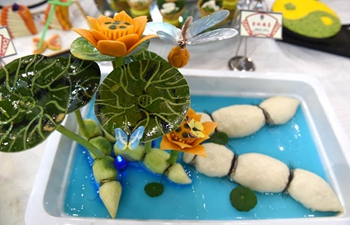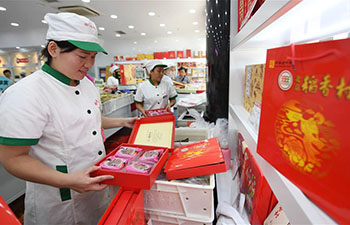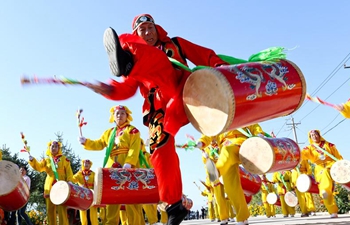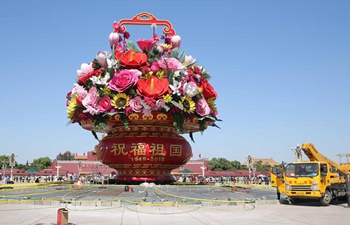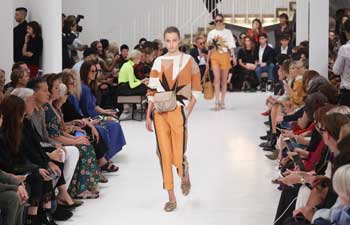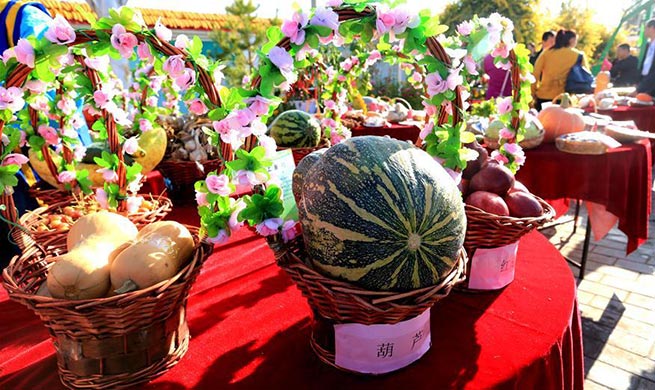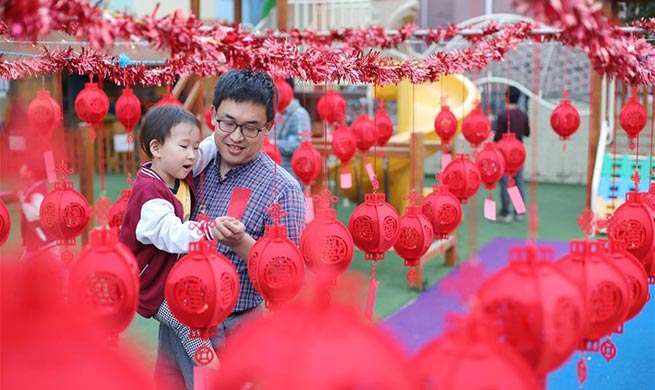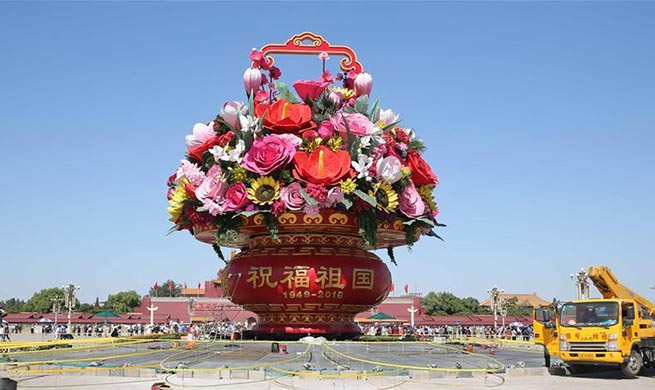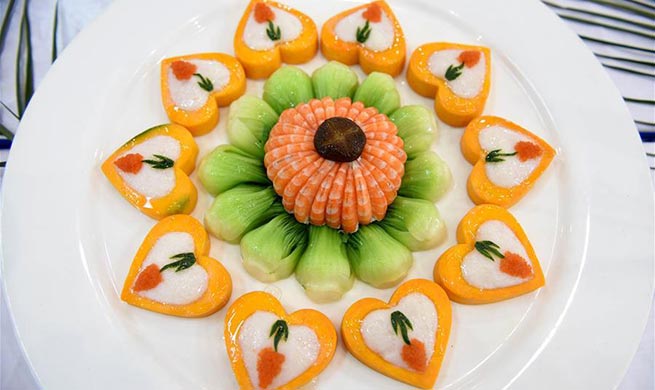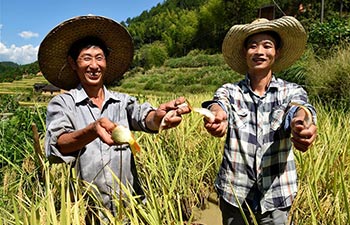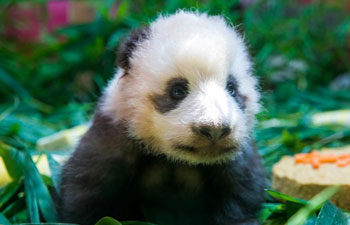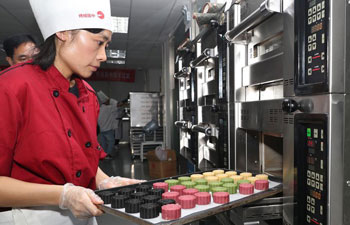BEIJING, Sept. 22 (Xinhua) -- The Mid-Autumn Festival falls on the 15th day of the eighth month on the Chinese lunar calendar, which is next Monday this year. Celebratory scenes can already be seen and festive atmosphere felt across China.
For Chinese people, the festival is of special ethical significance, and family reunion on this occasion lying deep in their consciousness has been a sentiment and mindset for hundreds of years.
The festival dates back over 1,000 years, when ancient Chinese people counted the days by the phases of the moon. They found out that the moon would be at its fullest in the middle of every lunar month and at its brightest in the middle of autumn. The date of the festival was thus decided.
"Chinese culture values ethics, and every festival that stemmed from the rhythms of nature would be integrated with the essence of social ethics," said Li Hanqiu, a researcher on traditional Chinese customs.
In this case, for Chinese, the round shape of the moon around the festival embodies family reunion and harmony, which, according to The Book of Rites, lays the ground for social harmony within a country.
Therefore, for those Chinese away from home or even on foreign grounds, looking at the same full moon on the day remotely with their loved ones usually strikes a chord deep inside them and generates a psychological coherence between them, which is a crucial part of their cultural identity.
"The vision of the reunion of families and country is the deep-lying psychological structure of Chinese people's family-based patriotism, as well as one of our spiritual resources nowadays to realize the 'Chinese Dream,'" said Li.
One of the best-preserved customs of the Mid-Autumn Festival is eating mooncakes, which are always made in a round shape and are mostly stuffed with sweetened bean paste or lotus seed paste.
"The role of mooncakes in the festive customs is not only to cater to people's appetite but also to serve as the carrier of our spirits for us to share our love with families and friends," said Xiao Fang, a sociology professor at Beijing Normal University.
Another well-preserved traditional custom is enjoying the sight of the full moon with loved ones, which makes seeing Chinese families go to parks or outdoor places a common scene during this occasion. It is regarded by many as an opportunity for people to communicate with the nature and harmonize personal relations.
According to Xiao, the old custom is particularly meaningful in modern society. "Looking at the full and bright moon with a simple mind, sharing affection with loved ones and cherishing the connection with the nature is like a spiritual refreshment for us, especially those who live in the raucous urban areas."
The diversified ethnic customs of the festival also symbolize and help unite the Chinese nation as a gigantic community, as the various ethnic groups in China share the joy of the festival with their own unique traditions.
For instance, young ladies of the Dong ethnicity have a tradition of "stealing" fruits and vegetables from the yards of their beloved young men; unmarried ethnic Miao people would dance together under the full moon; while the Dai people would worship the moon on the night, which is considered the incarnation of a mythical hero.
"A system of cultural symbols with the Mid-Autumn Festival at its core has been formed by the various customs of the Chinese ethnic groups," said Lin Jifu, a professor at Minzu University of China. "The festival also helps set up a cultural pedigree of the Chinese nation based on daily lives."




